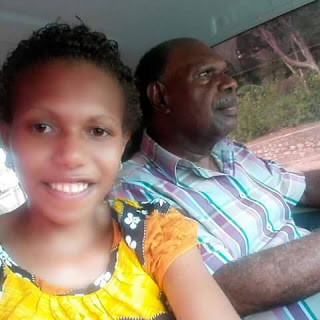2012 Elections was a systemic failure
NEWS.COM.AU
AUSTRALIA'S last-minute surge of support for Papua New Guinea's 2012 election stopped what would otherwise have been "an even larger failure", says corruption watchdog Transparency International PNG (TIPNG).
A recent report by TIPNG says 21 per cent of polling place observers said the process was unfair or very unfair, while 45 per cent said it was mostly fair.
"These numbers are troubling," the report said.
"No Election commission should see it as acceptable that in 45 per cent of polling places observers found elections were only mostly fair.
"A large number of people appear to be disenfranchised as a result of roll inaccuracy and possibly wrongful removal from the roll. This brings into question if the will of the people was truly expressed."
Just 37 per cent of election observers reported that the process was very fair.
TIPNG sent 282 election observers around PNG for the 2012 election, double the number it sent for the 2007 election.
The report says Australia's support of on-time elections in the form of logistical aid was a sign the system had failed.
"Surely in what was PNG's 37th year of independence we must regard the fact that our former colonial master had to again step in with major logistical support is a sign of major systemic failure," the recently published report said.
"There should be no doubt that the last minute 'surge' in support provided by the Australian Civilian Corp (ACC) averted what would otherwise have been a larger failure."
The report also expressed TIPNG's concern at the "highly variable" application of the secret ballot, with 36 per cent of observations saying there was never or only sometimes secret voting.
In the Highlands region 60 per cent of polling observations reported there was little or no secret voting.
During the elections AAP witnessed children voting in the Highlands town of Tari, while in another incident a police officer told of how a mother and breastfeeding baby were given two ballots so she and the child could vote.
The near-term run-up to the PNG elections were also chaotic.
For a year leading up the election the nation was locked in a political and legal battle between parliamentary elected PM, Peter O'Neill, and the court's choice, Sir Michael Somare.
Former deputy prime minister and now opposition leader Belden Namah led the charge to delay the elections on behalf of Highlands MPs who expressed dissatisfaction with the electoral roll.
Mr O'Neill, who following the election was returned to power at the head of a massive 94-strong coalition, briefly supported the delay but backed off following a massive public protest and international outcry.
At the time the TIPNG report was compiled there were 104 court challenges against the election results for 83 electorates.
Read more: http://www.news.com.au/breaking-news/world/png-2012-poll-systemic-failure-observers/story-e6frfkui-1226590960986#ixzz2MhypgcgP
AUSTRALIA'S last-minute surge of support for Papua New Guinea's 2012 election stopped what would otherwise have been "an even larger failure", says corruption watchdog Transparency International PNG (TIPNG).
A recent report by TIPNG says 21 per cent of polling place observers said the process was unfair or very unfair, while 45 per cent said it was mostly fair.
"These numbers are troubling," the report said.
"No Election commission should see it as acceptable that in 45 per cent of polling places observers found elections were only mostly fair.
"A large number of people appear to be disenfranchised as a result of roll inaccuracy and possibly wrongful removal from the roll. This brings into question if the will of the people was truly expressed."
Just 37 per cent of election observers reported that the process was very fair.
TIPNG sent 282 election observers around PNG for the 2012 election, double the number it sent for the 2007 election.
The report says Australia's support of on-time elections in the form of logistical aid was a sign the system had failed.
"Surely in what was PNG's 37th year of independence we must regard the fact that our former colonial master had to again step in with major logistical support is a sign of major systemic failure," the recently published report said.
"There should be no doubt that the last minute 'surge' in support provided by the Australian Civilian Corp (ACC) averted what would otherwise have been a larger failure."
The report also expressed TIPNG's concern at the "highly variable" application of the secret ballot, with 36 per cent of observations saying there was never or only sometimes secret voting.
In the Highlands region 60 per cent of polling observations reported there was little or no secret voting.
During the elections AAP witnessed children voting in the Highlands town of Tari, while in another incident a police officer told of how a mother and breastfeeding baby were given two ballots so she and the child could vote.
The near-term run-up to the PNG elections were also chaotic.
For a year leading up the election the nation was locked in a political and legal battle between parliamentary elected PM, Peter O'Neill, and the court's choice, Sir Michael Somare.
Former deputy prime minister and now opposition leader Belden Namah led the charge to delay the elections on behalf of Highlands MPs who expressed dissatisfaction with the electoral roll.
Mr O'Neill, who following the election was returned to power at the head of a massive 94-strong coalition, briefly supported the delay but backed off following a massive public protest and international outcry.
At the time the TIPNG report was compiled there were 104 court challenges against the election results for 83 electorates.
Read more: http://www.news.com.au/breaking-news/world/png-2012-poll-systemic-failure-observers/story-e6frfkui-1226590960986#ixzz2MhypgcgP








Comments
Post a Comment
Please free to leave comments.